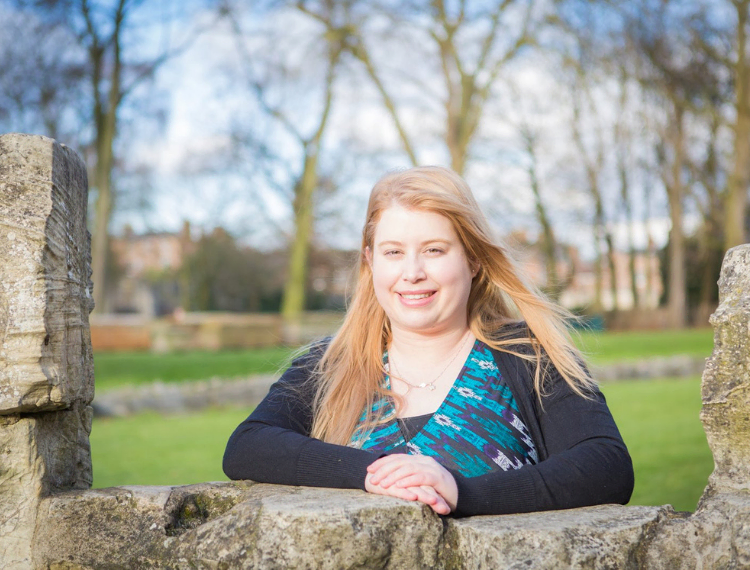How dyslexic entrepreneurs are leading the way in business

In this article, Annabel Mulliner from Little Seed Group explores the advantages #dyslexic individuals have in business, and how businesses can make the most of these traits.
There are plenty of misconceptions about dyslexia in education, the workplace and online, with dyslexic individuals, often being told that they will struggle to retain job security. But although there’s a long way to go in supporting dyslexic individuals in education and employment, dyslexic entrepreneurs are proving that the learning difference can provide unique strengths.
While only one in ten people are thought to be dyslexic, around 20% of entrepreneurs are dyslexic. Clearly, when dyslexic individuals are given the space to demonstrate their creativity, they thrive.
Ellen Cole is the founder of Little Seed Group, an award-winning PR, Marketing and Social Media agency based in York, North Yorkshire. Little Seed Group prides itself on being a ‘little bit different’, taking an upfront and honest approach and treating businesses as if they were their own.
After going freelance and starting her own business five years ago, Ellen found her dyslexia has proven to help her in unexpected ways. “I’ve found that I’m a great problem solver, and can notice trends and issues within businesses more quickly than others. It takes a lot of creativity and imagination to succeed in marketing, and these are dyslexic traits that have really benefitted me and my clients. For example, last year I increased one of my client’s annual sales by 1566% through crafting and delivering digital marketing activity. It became their best performing year in business and I am really proud of what I have achieved for them” Ellen said.
Thinking outside the box comes more naturally to those with dyslexia, and they can be both conscientious and persistent.
Undiagnosed and misunderstood
Many dyslexic individuals go through school and higher education without ever realising that they have a hidden disability. Several dyslexia organisations believe that the number of dyslexic people in the population is underestimated, due to individuals going undiagnosed. In 2019 APPG for Dyslexia reported that schools in England were failing to diagnose at least 80% of pupils who had dyslexia. Women, in particular, learn to mask their differences to fit in, making dyslexia even more difficult to spot.
Often it’s assumed that there is only one type of dyslexia, when in fact there are various types that impact people in different ways.
The different types can impact upon:
- Short term memory
- Processing speed
- Phonological awareness
- Reading efficiency
- Rapid automatic naming
Ellen was not diagnosed until her careers advisor at University suggested she should be tested when she was twenty-two years old which by that point no support was offered to her as she was coming to an end of her education.
Support in the workplace
When Ellen first embarked on her business journey, she took part in a Dyslexic Entrepreneur Scheme which gave her the confidence she needed when starting her own business. Within two weeks of starting the Little Seed Group, Ellen had a full roster of clients. Since then, she has won multiple awards and secured both national and international press coverage for her clients.
“While the scheme I took part in isn’t available anymore, my experiences inspired me to become a Mentor for Dyslexic Entrepreneurs, to provide others with the help that they need to thrive in business” Ellen said.
Only ¼ dyslexic entrepreneurs are female, so they are highly underrepresented compared to their male counterparts. Mentorships like this can give women with disabilities the confidence to excel in their careers.
She hopes, over the next year, to do more public speaking to raise awareness of how educators and employers can create a dyslexia-friendly environment, as well as presenting on a range of Marketing, PR and Social Media – related topics.
She said that “schools, colleges and universities need to offer better support to those with learning differences. Educators need to be trained to identify learning differences earlier on so that individuals’ needs are met and they can thrive by learning in a way which works for them”.
While individuals like Ellen are making change on a local level, educators and employers must take action to better equip dyslexic individuals for the working world. Creating an inclusive working environment is not expensive nor time-consuming,
Assistive technology and a flexible supportive approach with learning differences in mind can help employees to thrive in their positions. One positive change could be introducing dyslexia-friendly communication methods by printing on different coloured paper or in larger fonts, or by making information available as an audio track.
Dyslexia for the future
Attitudes to dyslexia need to change if individuals are to tap into their strengths. It is more useful to think of dyslexia as a learning ‘difference’ than a disability. Thinking outside of the box is something that we are all encouraged to do from school-age – those with dyslexia are wired to do this automatically.
In fact, the WEF predicted that skills that dyslexia can have a negative impact on, like reading, maths, and active listening are becoming less useful in the workplace due to automation. In contrast, dyslexic strengths like analytical thinking, design, and leadership are becoming increasingly in demand.
So, creating dyslexia-friendly workplaces may not only be a necessity in terms of equality and accessibility but may become crucial for businesses to adapt to the ever-evolving working world. Richard Branson himself has partially credited his entrepreneurial success to his dyslexia, saying that those with the learning difference have the ‘skills of the future’.
In the meantime, Ellen will continue to help businesses to grow, thrive and blossom through the pandemic, using her initiative to generate amazing results for her clients.
Annabel Mulliner from Little Seed Group











Responses